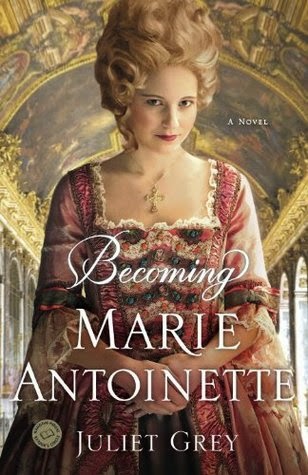 Farewell, My Queen by Chantal Thomas
Farewell, My Queen by Chantal ThomasLibrary
DNF on page 95 of 233
This book wasn't awful, but it just wasn't good enough to spend more time with it (even with the short page count).
The weak link is the premise. Told from the perspective of Marie Antoinette's assistant reader Agathe-Sidonie, already it's pretty clear that this is going to be a very peripheral perspective. Marie Antoinette was no reader, that's for sure.
Points off already for me because I prefer reading from the perspective of the actual historical figures, not their lackeys (even when done well. See The Winter Palace). But I knew what I was going into.
What I was hoping this perspective could at least give was a good historical recounting of the confusion and fear during those harrowing days and nights after the Storming of the Bastille.
Chantal Thomas does do this. Her account is good, but it is only just good and this falls flat when I've already read great. Reading these scenes just made me want to put down Farewell, My Queen and re-read Juliet Grey's series instead.
Part of this was because I think Juliet Grey did a better job (and of course it's right in the thick of things), but also because Juliet Grey made me care deeply for Marie Antoinette, whereas Chantal Thomas did not make me care at all about Agathe-Sidonie. She's a very insubstantial character who seems to exist in the narrative solely to admire Marie Antoinette (which, granted, she does a very nice job with this, even if it does come off as a bit of a Mrs. Danvers).
The problem with the peripheral character perspective is that Agathe-Sidonie doesn't know all of the interesting things that were happening. She notices the king and queen are upset about something, but she doesn't know why. She hears rumors, but she doesn't know the truth. She sees Marie Antoinette walk past her, but she doesn't know where she's going or where she's been.
While I do see the value in this type of story, it ultimately falls flat because there wasn't much depth to Agathe-Sidonie. If I'm going to experience this story from the outside looking in, then I at least want to feel something for the character I'm following. Instead, Chantal Thomas doesn't seem to care much about Agathe-Sidonie as a person going through this harrowing time. She is only there to wonder and think about how Marie Antoinette must be feeling, and for that, I'd rather just read from Marie Antoinette's perspective.
Plus, I want to KNOW, not float through apathetic guesswork. I think this approach may have been interesting to a point but ultimately boring and frustrating account if I hadn't already known all the things Agathe-Sidonie can only wonder about from the sidelines.
_________________________________
Looking for similar books? You might like:
Click on the cover to go to my review
Tweet

























